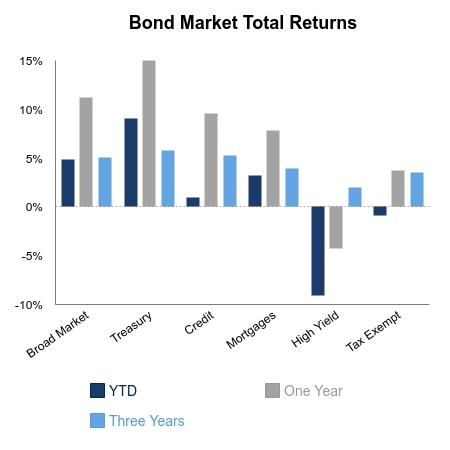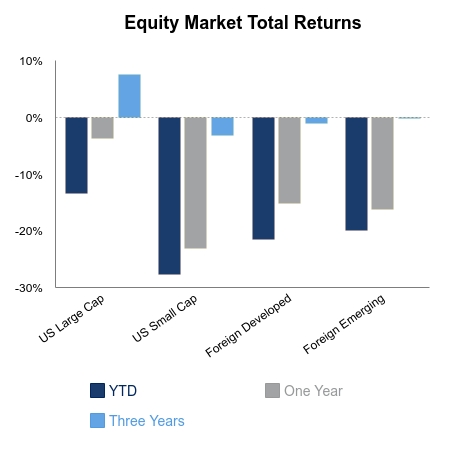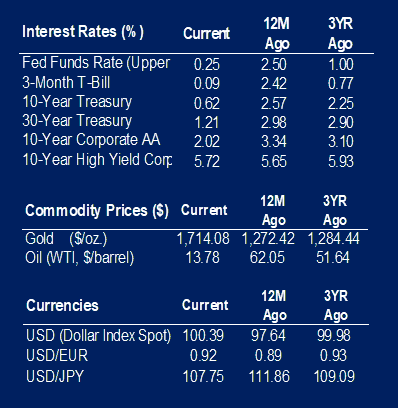Equities had two consecutive down days but bounced back to finish the week in the green. Small caps led the way with gains of 1.5% while foreign equities lagged. Yields moved lower with the five-year yield setting an all-time low. Corporate bonds lagged as spreads paused following significant tightening post Federal Reserve (Fed) intervention. The S&P 500 has staged a notable recovery this month with gains of 8.4% and is leading global markets out of the lows. The current gains are nearly double those seen in domestic small caps and emerging market equities, which were also the laggards during the sell-off.
The news of the week was oil prices falling $55 in one day to close at -$37/barrel. This is the first time oil, one of the most widely used commodities in the world, has seen prices go negative. And not only that, but once participants realized the price could go negative, it created an epic drop into the close. The negative price was driven by lack of storage, thus making physical delivery impossible for those long in futures contracts. It is a sign of the massive demand destruction currently taking place in the economy and occurred despite the largest OPEC cut in history just days earlier. The more damaging price action happened the next day when all the contracts due in the next couple of months started dropping 40-50%. Tanker rates are surging as floating storage is reaching capacity as well. A bounce finally appeared on Wednesday and helped take some pressure off equity indices.
The economic data continues to set records on the downside. Jobless claims are up more than 20 million over the four-week period. Bank of America did note that spending for those receiving CARES Act stimulus payments increased almost immediately. Amid the sudden stop in economic data is a tremendous amount of central bank and government stimulus. The Fed has engaged in several programs in coordination with legislative support. The domestic money supply, as measured by M2, is up 11% versus the prior year. This is the highest since 1983. The Fed balance sheet is up over 50% in just two months to $6.3 trillion.
Earnings season is gathering momentum and getting some attention. Thus far, S&P 500 earnings are down a little more than 21% for the first quarter. Earnings surprises are also negative. Guidance has been removed by most companies given the extreme uncertainty on when economic growth will resume.
 |
 |

Source: BTC Capital Management, Bloomberg LP, Ibbotson Associates, FactSet.
The information provided has been obtained from sources deemed reliable, but BTC Capital Management and its affiliates cannot guarantee accuracy. Past performance is not a guarantee of future returns. Performance over periods exceeding 12 months has been annualized.
The information within this document is for information purposes only and is not intended as an offer or solicitation with respect to the purchase or sale of any security. Statements in this report are based on the views of BTC Capital Management and on information available at the time this report was prepared. Rates are subject to change based on market and/or other conditions without notice. This commentary contains no investment recommendations and you should not interpret the statement in this report as investment, tax, legal, and/or financial planning advice. All investments involved risk, including the possible loss of principal. Investments are not FDIC insured and may lose value.

